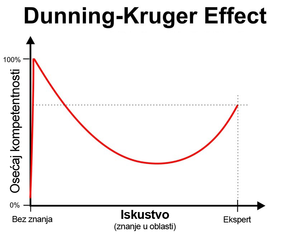Most of the self-taught physicist I have met fall in different levels of the crank spectrum: from the ones that read the Wikipedia article on Einstein and feel qualified to assert that the whole field is wrong; to the ones that have a genuine interest in gaining knowledge, but are incapable of seeing their own misunderstandings.
There are exceptions, and these are, mostly, people that already have a scientific or technical background. They usually know what it takes to learn a complex, technical subject, and have the discipline to follow through. And more importantly, they are more likely to know that there is more to advanced physics than what they already know.
The main problem of shallow learning, in my opinion, is when you aren't aware your knowledge is shallow. This is related to the Dunning-Kruger effect:
 (Source, sorry for the strange language)
(Source, sorry for the strange language)
Since you probably know quite a lot of software engineering, you know that that first peak of confidence is not real, and that you probably need a bit more than fist year newtonian mechanics to calculate a trans-lunar injection on your own.
I am not saying that already educated people are immune to the DK effect, but they are definitely more likely to be aware of it.

